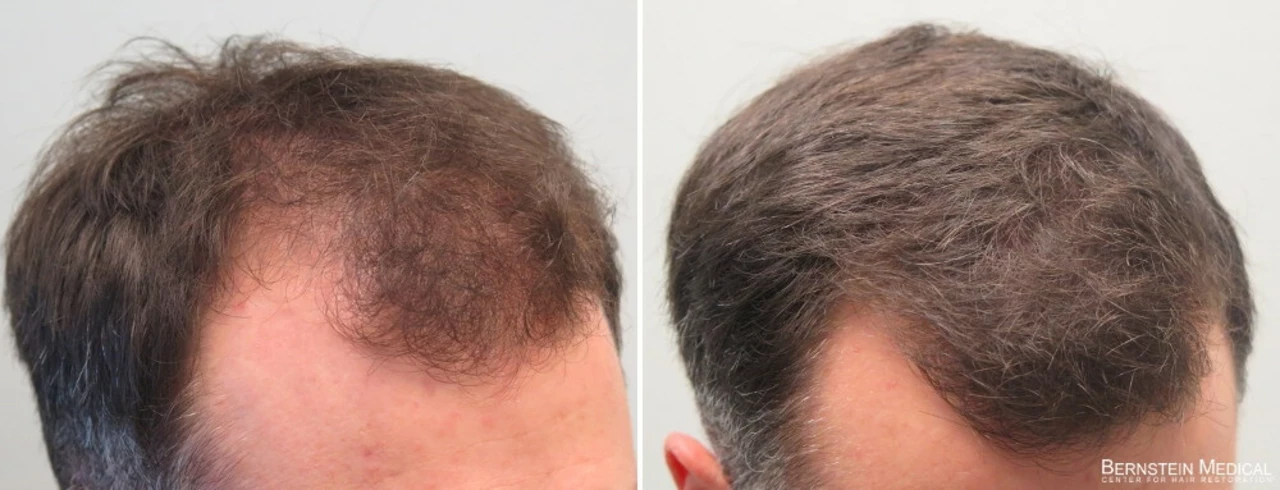Introduction to Nifedipine and Hair Loss
As a health-conscious individual, I always strive to keep myself updated with the latest information about medications and their possible side effects. Recently, I came across a topic that has been of particular interest to me: the connection between Nifedipine, a calcium channel blocker, and hair loss. In this article, I will delve into the details of Nifedipine and explore the possible reasons behind this connection.
Understanding Nifedipine and Its Uses
First and foremost, it's essential to understand what Nifedipine is and why it's prescribed. Nifedipine is a calcium channel blocker that works by relaxing the muscles of the heart and blood vessels. It is commonly prescribed to treat hypertension, or high blood pressure, and angina, a chest pain that occurs when the heart muscle isn't getting enough oxygen-rich blood.
As with any medication, Nifedipine can cause side effects, and it's crucial to be aware of these potential issues when prescribed this medication. Some common side effects include dizziness, headache, nausea, and constipation. However, one side effect that has raised some eyebrows is the possibility of hair loss.
Exploring the Connection Between Nifedipine and Hair Loss
While it is not a commonly reported side effect, there have been instances where individuals using Nifedipine have experienced hair loss. This has led to increased interest in understanding the relationship between this medication and hair loss.
Although the exact mechanism behind this connection is not well understood, there are a few theories that may explain the link. Some of these theories include hormonal imbalance, immune system response, and decreased blood flow to the hair follicles.
Hormonal Imbalance
One possible explanation for the connection between Nifedipine and hair loss is hormonal imbalance. Nifedipine may interfere with the balance of hormones in the body, leading to hair loss. For example, it is known that Nifedipine can cause a decrease in testosterone levels, which may result in hair loss in some individuals.
Immune System Response
Another theory is that Nifedipine may trigger an immune system response that leads to hair loss. In some cases, the immune system can mistakenly attack hair follicles, causing hair to fall out. While this is a rare occurrence, it is a possibility that should be considered.
Decreased Blood Flow to Hair Follicles
Finally, Nifedipine may cause a decrease in blood flow to the hair follicles. As Nifedipine works by relaxing the blood vessels, it may lead to a reduction in blood flow to certain areas of the body, including the scalp. This could result in less oxygen and nutrients being delivered to the hair follicles, leading to hair loss over time.
Identifying Hair Loss Caused by Nifedipine
If you suspect that your hair loss may be due to Nifedipine, it's essential to consult with your healthcare provider. They can help determine whether the medication may be the cause of your hair loss and discuss alternative treatment options if necessary.
It's also important to note that hair loss can be caused by various factors, including stress, hormonal imbalances, and certain medical conditions. Therefore, it's crucial to rule out other potential causes before attributing hair loss to Nifedipine.
Preventing and Managing Hair Loss While Taking Nifedipine
If you're taking Nifedipine and are concerned about hair loss, there are several steps you can take to prevent and manage this potential side effect. Some of these steps include:
- Maintaining a healthy diet rich in vitamins and minerals that support hair growth, such as iron, biotin, and zinc.
- Using a gentle hair care routine that minimizes damage to your hair follicles.
- Managing stress levels through regular exercise, relaxation techniques, and getting adequate sleep.
- Consulting with your healthcare provider to discuss alternative medications or treatments that may not have the same potential side effects.
Conclusion: Weighing the Risks and Benefits of Nifedipine
As with any medication, it's essential to weigh the risks and benefits of Nifedipine before deciding whether it's the right treatment for you. While there is a connection between Nifedipine and hair loss, it's essential to remember that this side effect is relatively rare and may not affect everyone taking the medication.
If you're concerned about hair loss while taking Nifedipine, be sure to discuss your concerns with your healthcare provider. They can help determine the best course of action for your specific situation and ensure that your treatment plan is both safe and effective.





20 Comments
Taryn Thompson
Understanding the potential side effects of any medication is key, so if you notice unexpected shedding, schedule a check‑up with your physician. They can evaluate whether Nifedipine is the culprit or if another factor is at play. Meanwhile, maintaining a balanced diet rich in iron and biotin can support follicle health.
Lisa Lower
Nifedipine works by relaxing smooth muscles in blood vessels. It is prescribed for high blood pressure and angina. Some patients report hair thinning after starting the drug. The exact cause is not fully understood. One theory suggests reduced circulation to the scalp. Another theory points to hormonal shifts triggered by calcium channel blockade. A third hypothesis involves an immune mediated reaction. Clinical studies on large populations show the side effect is rare. Still individual variability means anyone can be affected. If you experience sudden shedding, do not panic. Talk to your doctor about possible alternatives. Switching to a different class of antihypertensives may help. Some clinicians recommend adding a topical minoxidil for support. Nutritional supplements such as zinc and vitamin D can also be beneficial. Lifestyle factors like stress management play a role too. Ultimately, a personalized approach yields the best outcome.
Dana Sellers
If you think a pill can ruin your hair you’re just looking for excuses.
Damon Farnham
While it may appear that the medication alone is to blame, there are numerous physiological pathways involved, including vascular tone, hormonal balance, and even psychosomatic stressors, all of which can contribute to alopecia; therefore, attributing hair loss solely to Nifedipine without thorough clinical assessment would be an oversimplification, and further investigation is certainly warranted.
Gary Tynes
yeah talk to ur doc and keep eating good food it helps
Marsha Saminathan
Hey folks, just wanted to add that staying hydrated is often overlooked but super important for scalp health; drinking enough water helps nutrients reach the hair follicles and can mitigate some of the thinning you might notice when on meds.
Justin Park
From a mechanistic standpoint, calcium channel blockers may alter the microvascular environment around follicles, potentially reducing oxygen diffusion; this subtle shift can manifest as gradual shedding, especially in those with pre‑existing sensitivity 😊
Herman Rochelle
You’re right, it’s a nuanced issue and monitoring any changes over time is essential.
Stanley Platt
Indeed, the literature does cite isolated case reports wherein patients on Nifedipine presented with telogen effluvium; however, the prevalence remains low, and clinicians must weigh the cardiovascular benefits against dermatological concerns.
Alice Settineri
Wow, that sounds fancy but honestly who cares about rare case reports when you’re losing your hair and feeling like a bald eagle on a windy day!
nathaniel stewart
Dear community, I wholeheartedly encourage you to maintain optimism whilst navigating medication side‑effects; a positive mindset often contributes to better overall health outcomes.
Pathan Jahidkhan
Behold the tragedy of a simple pill turning a proud mane into a barren desert; the silent cruelty of a drug that promises heart health yet whispers to your follicles that their time has come.
Dustin Hardage
Clinicians should systematically assess hair loss in patients prescribed Nifedipine by documenting baseline density, monitoring changes, and considering dose adjustments or alternative agents when clinically appropriate.
Dawson Turcott
Oh sure, because doctors have all the time to count each hair strand, right? 😂
Alex Jhonson
Let’s all remember that sharing personal experiences can guide others; I’ve switched to a different calcium blocker and seen my hair bounce back, so discussing options is truly valuable.
Katheryn Cochrane
While anecdotal swaps are entertaining, they lack rigorous data and can mislead those seeking evidence‑based guidance.
Michael Coakley
Yeah, because swapping pills is as easy as swapping socks, right?
ADETUNJI ADEPOJU
In the grand schema of pharmaco‑dermatology, the marginal incidence of nifedipine‑associated alopecia is ostensibly negligible, thereby rendering exhaustive discourse somewhat superfluous.
Janae Johnson
Despite the rarity of reported cases, one must not dismiss patient narratives, for they often illuminate subtleties that large trials overlook.
Kayla Charles
Greetings everyone! I’d love to emphasize that while pharmacologic therapy is essential for managing hypertension, it is equally important to adopt holistic lifestyle measures, such as regular exercise, stress reduction techniques, and a nutrient‑dense diet, all of which synergistically support vascular health and, by extension, the vitality of hair follicles; moreover, maintaining open communication with your healthcare provider about any side effects fosters a collaborative environment where tailored solutions can be crafted; remember, your well‑being is a mosaic of many pieces, and each piece matters.